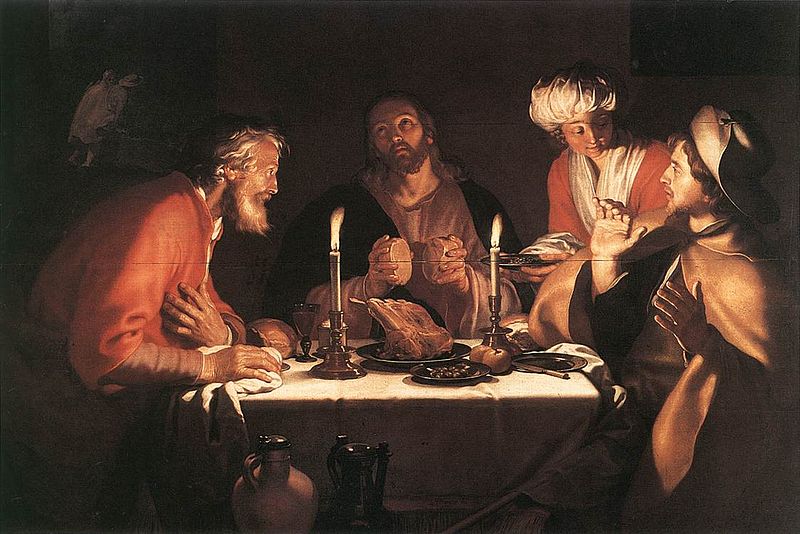 |
| The Emmaus Disciples - Bloemaert - 1622 |
Today we hear (Lk 24:13-35) of the appearance of the risen
Lord by some disciples on the road to Emmaus. We learn not only of this amazing
encounter between the two disciples and the resurrected Christ, but also, at
another level, how this encounter is a model of what the Church does for us.
The Church does for us what the risen Lord did for the
disciples on the road. First He walked with them. Secondly He gave the
‘interpretation of Scripture’. Thirdly He celebrated the Eucharist (He took
bread; He said a blessing; He broke it and gave it).
Through the Church our risen and ascended Lord walks with
us. Our pilgrim journey as disciples is not a lonely one, but one in which we
are accompanied by the Lord through His Church. The Church gives us the
‘interpretation of Scripture’, through the Church’s teaching authority (the
magisterium). We do not need to wrestle alone with understanding the Scriptures
but have the wisdom of all those who have been guided by the Holy Spirit to
teach with authority. And, the Church celebrates and most truly is the Church
when she celebrates the Eucharist.
We can come close to Jesus in the conversation of personal
prayer and meditating on His words. We find Him present in our fraternal
meetings, for when “two or three are gather in my name, there am I in your midst.”
But our risen Lord makes Himself known to us in a wholly and qualitatively
different way when we share the Bread of Life, His Body and His Blood.
So in this Eastertide let us rejoice that the Church is not
primarily a human institution but that in the joyous encounter of the two
disciples with the risen Lord on the road is a model of the Church. We can
experience our Lord presence with us through the Church. We can be wholly
confident in the magisterial teaching of the Church which is not the teaching
of men but the teaching of Christ through His servants. And we are truly
privileged to be able, by faith, to witness Christ Himself in the Eucharist.
Let us not take any of these things for granted nor in any way work against
them.
Fr Ian